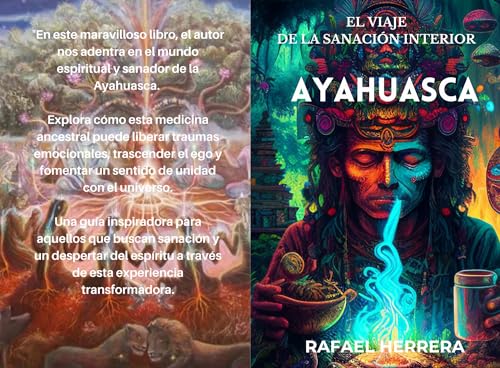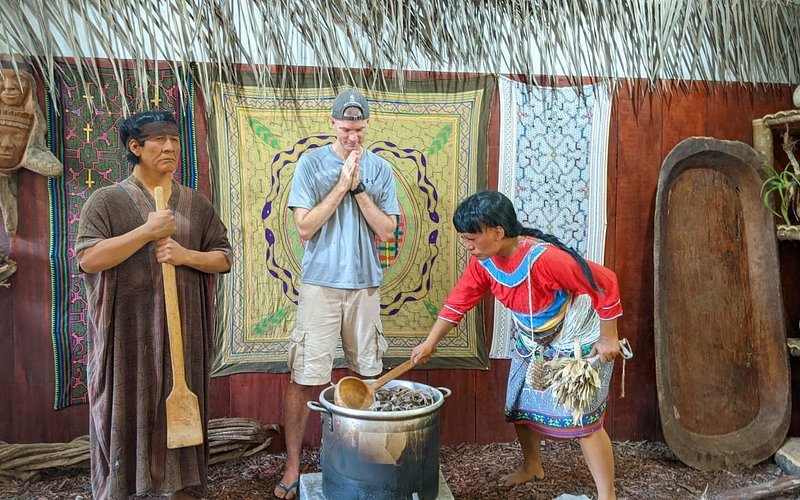Welcome to «Ayahuasca Experience,» where we dive deep into the transformative power of Ayahuasca and Narcissism. Join us as we explore how this ancient brew can offer profound insights into self-love, ego dissolution, and the path to true healing.
Unveiling the Self: Ayahuasca’s Potential to Heal Narcissistic Traits
Ayahuasca, a powerful psychedelic brew from the Amazon, has long been revered by indigenous tribes for its profound healing properties. The active ingredient, DMT (Dimethyltryptamine), is known to induce deep, introspective experiences that can lead to significant personal transformations. In the context of Ayahuasca Retreat and Healing, there’s growing interest in the plant medicine’s ability to treat various psychological conditions, among them narcissistic traits.
Narcissism, characterized by an inflated sense of self-importance, lack of empathy, and a desperate need for admiration, can be deeply rooted and resistant to change. However, Ayahuasca ceremonies offer a disruptive and intense mirror for self-reflection, often compelling users to confront their ego and self-centered behaviors in unpredictable and profound ways.
Participants in an Ayahuasca retreat often report experiencing deep emotional releases and insights into their own patterns of behavior. For those with narcissistic traits, these revelations can be both confronting and cathartic. The substance has a way of breaking down the barriers of the self, giving users access to a more authentic understanding of their place in relation to others and the world at large.
Accompanied by experienced shamans or facilitators, individuals are guided through their journeys with the aim of fostering an environment conducive to healing and self-discovery. Moreover, integration sessions post-ceremony are crucial for making sense of the experience and translating insights into lasting change.
It’s important to note that while Ayahuasca may offer potential benefits for those seeking to heal narcissistic traits, it is not a silver bullet. Healing is a nuanced process that takes time, and Ayahuasca should be seen as one tool among many in the quest for better mental health and self-improvement. Professional therapy and continuous personal development practices should accompany the experience for optimal results.
In summation, the potential of Ayahuasca to serve as a catalyst for healing narcissistic traits lies in its ability to bring forth a profound level of self-awareness and emotional catharsis. While promising, it must be approached with respect, caution, and comprehensive support to truly aid individuals on their journey towards healing and self-transformation.
Narcissistic pseudo spirituality
The Arc of Successful Treatment of Pathological Narcissism – DIANA DIAMOND
What is the spiritual origin of narcissism?
In the context of Ayahuasca Retreat and Healing, the spiritual origin of narcissism can be explored through the lens of shamanic tradition and the deep introspection that Ayahuasca ceremonies facilitate. Narcissism, characterized by an inflated sense of self-importance, a deep need for excessive attention and admiration, and a lack of empathy for others, can be seen as a symptom of spiritual disconnection or imbalance.
From a shamanic perspective, one could argue that the spiritual origin of narcissism is a disconnection from the true self and the universe. In the shamanic worldview, all things are interconnected, and the health of one’s spirit is deeply tied to one’s relationship with the natural world, the community, and the greater cosmos. When individuals lose this connection, they may try to fill the void with self-aggrandizement or by exerting control over others.
During Ayahuasca retreats, participants often confront their shadows—those aspects of themselves that are denied, repressed, or ignored. Ayahuasca, known as the «vine of the soul,» acts as a catalyst for deep psychological and spiritual revelations. Participants can encounter profound truths about their behaviors, motivations, and fears. For someone exhibiting narcissistic traits, an Ayahuasca journey could potentially reveal the root causes of their narcissism, such as past traumas, feelings of inadequacy, or unmet emotional needs.
The healing process in such retreats involves purging not only physical toxins but also emotional and spiritual blockages. Through visions and insights provided by the Ayahuasca experience, individuals might gain a clearer understanding of how their narcissistic behavior is a defense mechanism to protect a fragile self-esteem or an attempt to gain the love and validation not received earlier in life.
Moreover, Ayahuasca retreats emphasize the importance of community and interconnectedness. In this context, healing is not an individualistic endeavor but a collective one. Narcissistic tendencies may be challenged by the communal nature of the retreat, where sharing and empathy are fostered, and where participants are urged to consider their place in the larger web of life.
Ultimately, it is believed that through Ayahuasca healing, an individual could learn to dismantle the ego’s defenses, practice self-forgiveness, and cultivate a more authentic sense of self that is aligned with the natural order and the community. This spiritual awakening may restore the balance and connectedness required to heal narcissism at its core.
Rewrite the following question: What words can destroy a narcissist?
In the context of Ayahuasca Retreat and Healing, how can language be used to disarm a narcissist?
How can you make a narcissist uncomfortable?
In the context of an Ayahuasca Retreat and Healing, it is essential to understand that the aim is not to intentionally make anyone uncomfortable, including individuals with narcissistic traits. Ayahuasca ceremonies are about healing, personal growth, and self-discovery, rather than focusing on others’ flaws or personality disorders.
However, due to the nature of the experience, a person with narcissistic tendencies might inherently feel uncomfortable because Ayahuasca can strip away the ego and force introspection, something that can be very challenging for a narcissist. Here are some aspects of an ayahuasca retreat that might naturally discomfort someone with narcissistic traits:
1. Ego dissolution: Ayahuasca can lead to an experience often referred to as «ego death,» where the sense of self-importance and identity dissolves. This can be particularly unsettling for someone who depends on their ego and external validation for their self-esteem.
2. Confronting the shadow self: During a retreat, individuals are often faced with their shadow self – the unconscious parts of their personality they deny or hide from. For a narcissist, facing these hidden aspects could be deeply uncomfortable.
3. Emphasis on community and interconnectedness: Ayahuasca ceremonies often emphasize a sense of unity and interconnectedness with others, which might contrast with a narcissist’s focus on individual superiority and need for attention.
4. Guidance towards empathy and compassion: The teachings and insights gained from the plant medicine might push a narcissist to develop empathy and compassion, traits they typically struggle with due to their self-centered nature.
5. Release of control: A fundamental aspect of the ayahuasca experience is surrendering control, which can be particularly challenging for someone who thrives on having control and manipulating their environment.
6. Therapeutic integration: Post-ceremony integration involves discussing and understanding one’s experiences, which includes being vulnerable and open — a state a narcissist may avoid due to fear of exposure or perceived weakness.
It’s important to note that while these elements may make a narcissist uncomfortable, they also have the potential to catalyze significant personal growth and healing if the individual is willing to engage with the process. An Ayahuasca retreat is not about targeting anyone’s vulnerabilities but rather offering an opportunity for profound personal transformation. If someone with narcissistic tendencies approaches the experience with an open heart and mind, they too can benefit from the therapeutic potential that these ancient practices offer.
What is the origin of narcissism?
The origin of narcissism, in the context of Ayahuasca Retreat and Healing, can be multifaceted and complex. Here, we’ll consider the psychological and spiritual perspectives that are often discussed within the healing circles that employ Ayahuasca as a tool for personal transformation.
Psychologically, narcissism is believed to stem from early childhood experiences. A child might develop narcissistic traits as a result of excessive pampering or, conversely, due to severe neglect or abuse. This behavior could be a defense mechanism that protects a fragile self-esteem against feelings of inadequacy or vulnerability. The core of narcissism is often thought to be a deep-seated sense of insecurity.
From a spiritual or shamanic perspective, often embraced in Ayahuasca healing traditions, narcissism might be seen as a spiritual imbalance or a disconnection from one’s true self. In this view, narcissistic behaviors serve as coping mechanisms to mask the pain of this disconnection.
Ayahuasca, as an entheogenic medicine, is used in retreats with the intention of promoting deep healing. The participants engage with the Ayahuasca brew, which contains the psychoactive compound DMT (N,N-Dimethyltryptamine), often leading to profound introspection and emotional release. This experience can offer insights into one’s behavior, including narcissistic traits, revealing underlying issues that require attention.
During an Ayahuasca ceremony, individuals might confront their ego and gain a greater understanding of how it influences their thoughts and actions. Such experiences could potentially help reduce narcissistic tendencies by fostering a stronger sense of connection to others, to the environment, and to one’s deeper self.
It is important to note, however, that Ayahuasca is not a magical cure for personality disorders, and its use should be approached with caution, especially for those with pre-existing mental health conditions. An Ayahuasca retreat often includes traditional counseling, integration sessions, and continuous support, which are crucial for attendees to process their experiences and promote long-term psychological and spiritual changes.
Ultimately, the aim of an Ayahuasca retreat in relation to narcissism would be to help individuals transcend their ego-driven patterns and cultivate a more authentic, compassionate way of being. Nevertheless, scientific research on Ayahuasca and its effects on narcissism is still in its infancy, so the exact benefits and potential for healing such personality traits continue to be explored.
Frequent Questions
How can an Ayahuasca retreat assist in the healing process for individuals with narcissistic behavioral patterns?
An Ayahuasca retreat may serve as a catalyst for deep introspection, allowing individuals with narcissistic behaviors to confront and reflect on their patterns from a new perspective. The intense, often introspective nature of the Ayahuasca experience can lead to increased self-awareness and empathy, possibly reducing egocentric tendencies and fostering a stronger sense of connection with others. This process could potentially facilitate a form of emotional healing and personal transformation by encouraging the recognition and release of harmful behavioral patterns. However, professional guidance during the retreat is crucial to navigate such complex psychological work safely.
What are the potential insights or breakthroughs that narcissistic personalities may experience during an Ayahuasca ceremony?
During an Ayahuasca ceremony, individuals with narcissistic traits may experience profound insights into their own behaviors and emotions. They might gain a heightened sense of empathy towards others, recognizing how their actions affect those around them. There’s the potential for breakthroughs in self-awareness, leading to a deeper understanding of their motivations and insecurities that drive narcissistic behavior. The ceremony can also provoke a strong sense of interconnectedness with others, countering the isolation that narcissism can create. These experiences could catalyze a journey towards healing and transformation in their interpersonal relationships and sense of self.
Does Ayahuasca have the capacity to instill empathy and self-awareness in individuals with narcissistic tendencies, and if so, how is this facilitated during a retreat?
Ayahuasca may have the potential to foster empathy and self-awareness in individuals with narcissistic tendencies. During a retreat, the psychedelic experience provided by Ayahuasca can lead to deep personal insights and increased emotional sensitivity, which can, in turn, reduce ego-centric behavior and enhance understanding of others’ perspectives. This therapeutic effect is often facilitated by the guided support of experienced facilitators who create a safe environment for introspection and healing.
In conclusion, the journey into the depths of the self, facilitated by ayahuasca, can act as a powerful mirror reflecting our innate human complexities. For those entangled within the grasp of narcissism, an Ayahuasca Retreat and Healing experience may provide a unique opportunity for introspection and emotional release. The potential for ayahuasca to catalyze an awakening to one’s vulnerability and interconnectedness with others holds promise for softening the rigid structures of a narcissistic personality.
It is crucial to recognize that while ayahuasca may offer profound insights, it is not a panacea. Genuine transformation often necessitates ongoing work and commitment to personal growth beyond the ceremonial space. Participants must carry forward the lessons learned with the support of a community or therapeutic guidance to ensure lasting change.
Moreover, the importance of setting and experienced facilitation cannot be overstressed. Individuals considering an ayahuasca retreat for addressing traits of narcissism should meticulously evaluate the credentials and ethos of the retreat centers and healers. The right environment can make all the difference in ensuring a safe and nurturing experience.
Embarking on an ayahuasca retreat can be the beginning of a transformative healing process, potentially guiding individuals away from the isolation of narcissism towards the cultivation of empathy, humility, and a deepened sense of connection. The promise of ayahuasca in fostering healing and growth is a testament to the profound ways in which this ancient plant medicine continues to touch and transform lives.
As we integrate the insights gleaned from this sacred teacher plant, may we all move closer to embodying the wholeness and harmony that is our true nature.
Lastly, it’s essential to remember that healing is a journey, not a destination, and when it comes to complex issues like narcissism, the path of recovery can be as intricate and nuanced as the condition itself. Whether you are personally grappling with aspects of narcissism, or are a facilitator helping others through their journey, approach each step with compassion, open-mindedness, and a willingness to continue learning and growing. With these virtues, the journey of healing through ayahuasca can indeed be a pivotal chapter in one’s life.






